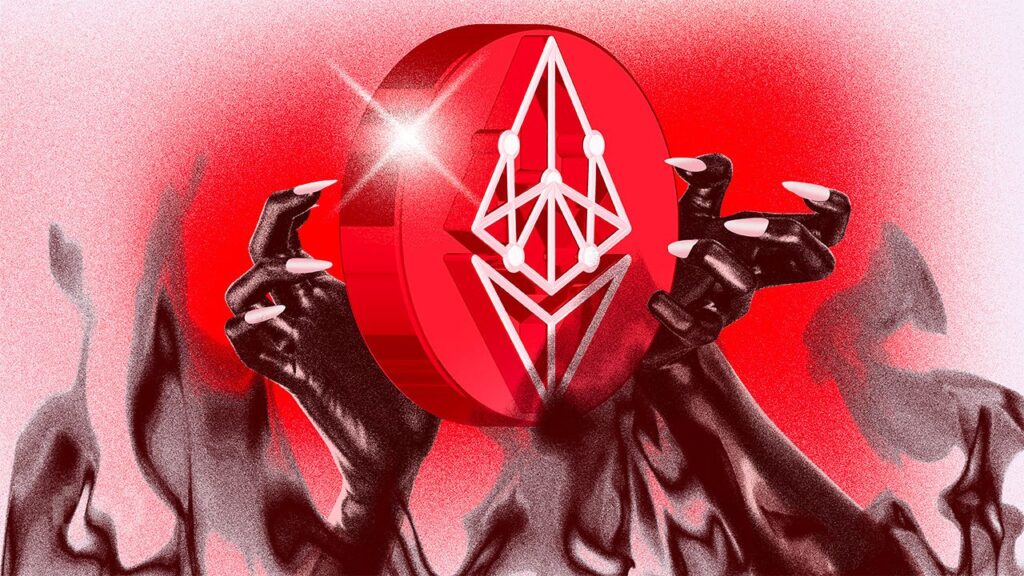When the Ethereum Foundation ignores Viper, Argot sparks an outcry

The Ethereum Foundation launched the Argot Collective – a long-term, non-profit organization for Ethereum software development.
However, the initiative has sparked controversy, especially among fans of the Vyper programming language.
Curve Finance founder Michael Egorov blamed the Ethereum Foundation
Argot Group shared the announcement, showing a structure that supports Ethereum-related projects for up to a decade, with long-term funding. According to the blog, Argot's mission is to foster a non-hierarchical, democratically-governed environment that promotes software development in the Ethereum ecosystem, free from commercial pressures.
Argot focuses on several projects including Solidity, Fe, and other Ethereum tools. It provides ongoing support for these languages to improve the Ethereum developer environment. Argot's collection is designed to “eliminate rent-seeking or exploitative profit-seeking.” It also serves as a counterbalance to the financially driven elements in the Ethereum community.
Read more: An in-depth look at the Ethereum network.
Specifically, Fe is a security-focused Ethereum smart contract language that uses Viper as its foundation. Viper is also contract-oriA programming language targeting the Ethereum Virtual Machine (EVM). The lack of funding for Vyper raises red flags for developers who rely on it.
Critics of the foundation argue that Vyper's lack of funding will affect security and the potential use of projects based on it, making it more difficult to maintain and develop. However, the Ethereum Foundation seems to have ignored this.
A group that decides to fund (now independent) projects within the Ethereum Foundation. They did not fund Vyper (used by Curve Finance, Lido Finance, and Yearn Finance) with a focus on languages (c). However, they funded Fe (which literally nobody used). “Coincidentally and unrelatedly, team members = team members of funded projects,” said Michael Egorov, founder of Curve.
Egorov's comments suggest deep suspicion, suggesting that personal or professional connections within the foundation may have negatively influenced the decision. The idea is that Vyper's critical role in decentralized finance (DeFi) will be similar to what Argot now provides for other EVM-compatible languages.
“It's a bit sad that Vyper is always outside of these organizations/groups, but I find it a bit cypherpunk. Another X-user with a ‘you don't have me' kind of dog pose or amazing talent.”
However, the launch of Argot reflects a broader organizational change within the Ethereum Foundation. It has moved towards empowering independent bodies to manage various aspects of its development.
Argot Common is committed to financial transparency.
In a statement, Argot explained that it is committed to “financial and organizational transparency” by planning to release detailed documents on budgets, management and plans. Argot promised that the organization would work towards financial autonomy through grants and revenue distribution. This is a rejection of traditional financial models, equity sales, token offerings or closed source projects.
Some members of the community speculated that the choice of finer languages in Argot reflected a quiet push toward technical decentralization. As reported, the Ethereum Foundation is looking to ensure cross-device support in EVM.
“This is something I've said for years, Solidity (and related projects) are finally moving out of EF. [Ethereum Foundation] They are involved in self-organized and self-funded foundations. This is incredibly flashy for Ethereum,” said user X.
Yet, for Ethereum DeFi heavyweights, these guarantees can be short-lived. Financial diversity seems to reduce the number of projects that are important to Ethereum's financial ecosystem, with experimental languages taking priority over languages that are already critical to the DeFi infrastructure.
The general feeling in the responses to Egorov's comments should follow the influence of funding. Critics see Vyper as critical to Ethereum's security and usability. They argue that the exclusion from funding could be detrimental to the foundation's approach to resource allocation.
The fallout from this controversy opened up a wider debate around Ethereum's funding priorities. The impact of personal relationships on decision-making in the ecosystem is based on feedback.
Read more: How to Monetize Creativity: A Guide to Web 3 Gifts
As the Argot Collective prepares to officially launch its operations in early 2025, the Ethereum Foundation may be under significant pressure to address these concerns. For now, the community awaits further clarifications, hoping that the foundation's activities will eventually reflect the decentralized, democratic ethos it aims to pursue.
Disclaimer
Adhering to the Trust Project guidelines, BeInCrypto is committed to unbiased, transparent reporting. This news report aims to provide accurate and up-to-date information. However, readers are advised to independently verify facts and consult with professionals before making any decisions based on this content. Please note that our terms and conditions, privacy policy and disclaimer have been updated.













